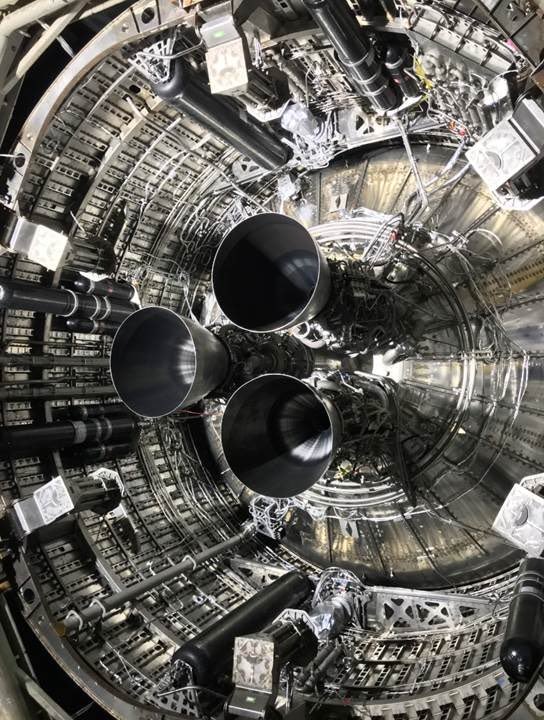nortex97 said:
Sorry, not sure if this is the original but here is a good link;
https://spacenews.com/spacex-launches-starlink-satellites-as-it-deorbits-original-ones/
Quote:
With this launch, SpaceX has now launched 775 Starlink satellites, counting two prototypes launched in early 2018. However, 47 of those satellites have since reentered, either through deliberate maneuvers or natural decay, according to data maintained by astronomer and spaceflight analyst Jonathan McDowell.
The bulk of those deorbited satellites are from the initial group of 60 "v0.9" Starlink satellites launched in May 2019. Through Oct. 4, 39 of those satellites have deorbited, all but two of which since early August.
The rate of deorbiting picked up in late August, with 32 satellites deorbiting since Aug. 29.
SpaceX has not publicly disclosed why it is deorbiting the v0.9 Starlink satellites. The company said in January it would carry out a "controlled de-orbit of several first iteration Starlink satellites," citing improvements in the communications payload in subsequent Starlink satellites.
Critics of Starlink, though, have claimed the deorbiting satellites are evidence of reliability problems. In a Sept. 17 filing with the Federal Communications Commission, Viasat claimed that Starlink satellites had an in-orbit failure rate of 7%, far higher than SpaceX's claims of a failure rate of less than 1%. "And an actual failure rate this high, manifesting after such a small fraction of a Starlink satellite's design life has passed, optimistically implies a staggering 22% failure rate over the duration of the Starlink mission," the company argued (emphasis in original.)
Viasat based that conclusion in part on McDowell's data, prompting a rebuttal from him in a Sept. 21 FCC filing. He argued Viasat inflated the estimated failure rate of Starlink satellites by including the deorbited v0.9 satellites. "To include the deliberate retirement of the V0.9 satellites as failures, which Viasat appear to be doing, does not seem remotely justifiable to me," he wrote.
"Viasat believes that data about all Starlink failures are relevant," the company said in a Sept. 24 filing responding to McDowell. That includes, the company said, the v0.9 Starlink satellites being deorbited.
"Viasat is not aware of any valid basis for treating the v0.9 Starlink satellites (the first 60) as 'early prototypes' and thus somehow 'unrepresentative' of the Starlink system."
(Most) Comments there are pretty informative/correct, imho.
I may be misremembering and it was actually the initial two Starlink prototypes, but my recollection was that the first batch of 60 satellites lacked the total interoperability between satellites to fully function in the final array.
In other words the satellites could do ground to satellite back to ground, but part of the operation of the satellites is ground to satellites to satellite to ground to reduce worldwide latency. I just recall being disappointed in hearing that the initial batch of 60 would not count towards the necessary 1200 satellites for full coverage.
I wouldn't trust Viasat about anything to do with Starlink. They're going to be in bankruptcy if Starlink succeeds and there's no avoiding that for them. The only survival outcome for them is if Starlink fails.
Musk has said once the most recent batch of satellites has reached their final orbit/altitude they'll be able to begin a public beta for the northern United States and southern Canada. Also said that Texas/Brownsville area would follow 3 months after that. To reach final orbit is going to take 3 months.
Should be Q1 2021 for public betas in Texas and fingers crossed they'll have full coverage by middle of next year. At that point it's just building out the array to maximize bandwidth.








